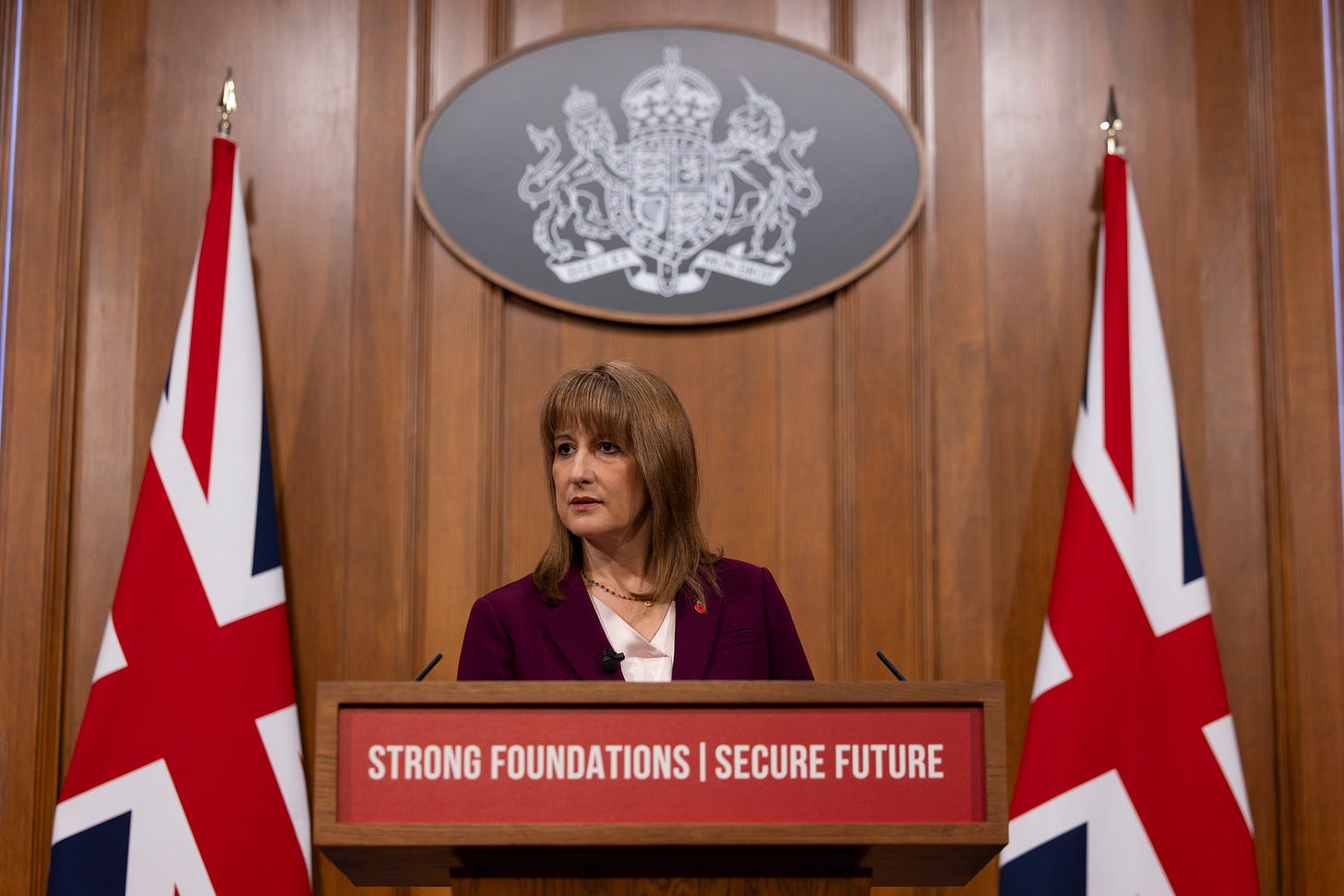Read my lips: no good options
Labour will pay a price for breaking its tax promises — it deserves to. But what's the alternative?
What is it with British politics and cricket analogies? Chancellors on a “sticky wicket” are advised to play with a “straight bat” and ignore the “sledging” from opposition benches. Perhaps, like so much of the last several decades, it all comes back to the defenestration of Margaret Thatcher.
In a speech at the Lord Mayor’s Banquet on 12 November 1990, the prime minister brushed off the resignation of Geoffrey Howe with a (slightly tedious) cricketing metaphor:
I am still at the crease, though the bowling has been pretty hostile of late. And in case anyone doubted it, can I assure you there will be no ducking the bouncers, no stonewalling, no playing for time. The bowling’s going to get hit all round the ground.
No one actually remembers these remarks, of course. Instead, what went down in history was Howe’s front-foot riposte. In his resignation speech in the House of Commons two days later, the one-time Thatcher ally set out his concerns that the prime minister’s approach to Europe was making life impossible for ministers:
It is rather like sending your opening batsmen to the crease only for them to find, the moment the first balls are bowled, that their bats have been broken before the game by the team captain.
Thatcher was gone by the end of the month although, to be fair, three general election victories and 11 and a half years in Downing Street represents a good innings.
A speech that could have been a heavy roller
In some ways, that was a really weird speech by Rachel Reeves yesterday morning. All chancellors engage in a bit of pitch-rolling before any fiscal event. But they don’t call what felt a lot like an emergency news conference in which they set out all the problems the economy faces. Indeed, in an ideal world, chancellors wouldn’t do any media at all, given that every journalist’s question is greeted with the same rote response: “You’ll have to wait for the Budget”.
But Reeves clearly felt like she had no choice. Because she is about to perform a U-turn on a par with Ted Heath in 1972 and François Mitterrand in 1983. Now, all governments do perform-turns and while they make headlines, they are not usually a big deal. Turning around, no matter how inelegantly, is almost always preferable to pressing ahead in the wrong direction.
Indeed, the 2010-15 coalition government — in policy terms the most successful of the five Conservative-led administrations of the period — did it rather frequently, from plans to sell off the forests to minimum pricing for alcohol. But what Reeves is about to do is quantifiably different.




